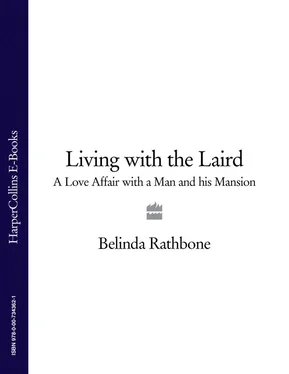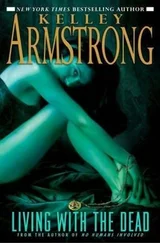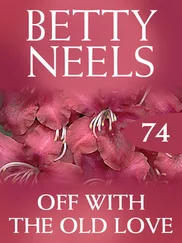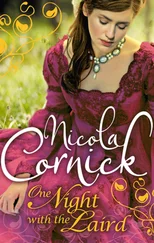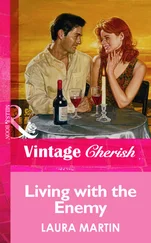On Monday we took off for Denman Island to stay with Pippa’s older sister Anne on her organic apple farm. Our knees knocked together in the crowded back seat of Anne’s station wagon. We bundled up against the wind and strolled the rolling deck of the ferryboat. The next morning John and I were promptly dispatched on an outing with bicycles and directed towards the ferry to nearby Hornby Island. John, leading the way, wagged his tail at me like a happy dog and cast the occasional backwards glance as I strove to keep up. We found a sandy beach, went swimming in the cool blue bay, shared sandwiches and swapped travel stories.
‘I don’t like being a tourist,’ I told him. ‘Nowadays I tend go where I’m invited, either on business or as a guest in somebody’s house. It’s the only way to really get into the heart of a place.’
‘I just like exploring, without a fixed program,’ John rejoined -^ much as we were doing that day, cycling down unknown roads without a map, without a guide. We had both spent time in Spain on business. We discussed the Spanish character, and that famous cliché, mañana . Did their use of the word really mean that they could put something off indefinitely, I queried, or, on the contrary, that it was urgent? John thought it meant they could put it off. In my experience it meant that it was urgent. Perhaps our sense of the Spanish character simply served as a mirror of ourselves. John’s instinct to put things off and my sense of urgency meant that in this case we almost, but not quite, missed the last ferry back to Denman.
That evening after supper, sitting around the picnic table on the porch of Anne’s self-built island farmhouse, Anne asked John about ‘the Guynd’, his family home in Scotland, which she remembered visiting as a child.
The Guynd, I learnt, was an agricultural estate that John’s family had owned for the past four hundred years. ‘Guynd’ in Gaelic means ‘a high, marshy place’. The Guynd rhymes with ‘the wind’, and as it blew into our conversation the residual gaiety of the wedding weekend was swept away like a summer shower on a picnic. No longer the convivial traveller, John’s expression darkened; a flood of concerns and irritations surrounded and enveloped him. He had resumed the role he’d left behind in Scotland, that of the reluctant incumbent to a sadly run-down estate.
Since his mother’s death three years earlier the mansion house had stood empty, except for a single tenant, a young artist from Glasgow, in a basement flat. John’s father had been dead some twenty years. John’s younger brother, Angus, had left his wife and three children and fled to Canada back in the 1970s. John himself had been residing at a safe distance, in London, for the past several years. Trained as a mechanical engineer, he had been caught up in the ferment of the 1960s, gave up a career in the oil business and never looked back. From then on, between roaming South America with a girlfriend, boat building in Majorca for a rich American and flat renovating all over London, he discovered sex, marijuana, garlic and William H. Whyte’s The Organization Man and decided he was a new man. Meanwhile he continued to make regular forays to Scotland, knowing that the house would someday be his, as the elder son, to carry on. For no matter what experience he had acquired elsewhere, and what attractions they held, his identity was still shaped mainly by that role and that place.
‘When are you going to move back?’ asked Anne.
‘I get up there quite a lot,’ John answered defensivly. “Anyway, Stephen’s in the West flat. He’s always there.’ The question bothered him, I could tell. It was clear that his inheritance was a mixed blessing, that as much as he was devoted to the memory—or myth—of its glorious past, the reality of its present condition was discouraging at best. The appearance of the light traveller with his rucksack, the breezy cyclist who just liked to explore, concealed an unusually heavy load of baggage that weighed him down wherever he went. Although we shared first cousins, and my mother was born as English as his was, we were of very different cultures.
From an early age I had travelled widely in Europe with my family, and we never failed to schedule a stay in England. I have fond childhood memories of visiting my cousin Judith in her long, low-ceilinged cottage in the Kent countryside, of climbing the cherry trees and walking the fields with her dogs. I remember staying at the Norfolk Hotel in South Kensington, riding the double-decker bus to Covent Garden and feeding the ducks in Hyde Park. In school, for some reason, my eyes watered and my voice choked when we sang ‘Jerusalem’. But what did building Jerusalem in England’s green and pleasant land have to do with me? Now I knew, as I listened to John, that I had only skimmed the surface. He had a depth, a kind of worldweariness that is the privilege of Europeans—especially Europeans with baggage—that I could hardly touch.
The scene he described in Scotland was like something out of Country Life. I recalled the magazine arriving for my mother once a month in a brown, tightly rolled overseas bundle, and I would peruse the front pages with its aerial views of vast manorial estates hidden deep in the English countryside, or thatched roof cottages that might have been the setting of a Thomas Hardy novel. To John the scene was not that of a book or a magazine; it was real, it was today, the characters were living and he was one of them.
Anne had assigned me to a bedroom upstairs, and John to a mattress on the living room floor. But that night I crept downstairs. My plane was leaving mañana , in a matter of hours we would be separated by thousands of miles, and there was no time to worry about propriety. Besides, as I slid under the covers beside John, I could tell he was expecting me.
The next afternoon John saw me off from the little island airfield, promising to write and to call, and to plan our next meeting. But where? John was eager to come to New York but I was hesitant to see him there just yet. He seemed to be a man trying to escape his past, and I was not sure I was prepared to play host to his flight. Better, I thought, to see him first on his own turf, to know what he was running from. We agreed to meet at the Edinburgh Festival in late August. That way, if our precipitous, longdistance romance proved a fizzle, we could always lose ourselves in the darkness of the theatre.
‘BRING PLENTY OF WARM CLOTHES,’ warned my mother, ‘it’s not like summer there.’
In August? My mother had a tendency to exaggerate, especially about the cold. I travelled in a thin cotton dress and regretted it the minute I stepped outside the terminal building at the Edinburgh airport. A brisk wind whipped at my skirts as I buttoned up my cardigan and searched for a sign of John. There he was, the native, in a heavy shirt and pullover, corduroys and sandals with socks. (Sandals with socks!) Everything that had seemed exotic or eccentric about John in Vancouver was about to seem perfectly normal. He was a cut of the old cloth.
In Edinburgh at festival time the one-act plays, comedy revues and concerts of the Fringe played in every available public space, and clowns and mimes performed their antics on the hilly, cobbled streets of the Old Town. Walking the streets with names like Cowgate and Grassmarket, overlooked by the stony fortress of Edinburgh Castle at one end of the town and the bare hillside of the Crags at the other, John was in his element, and I was entranced. We laughed through parodies of Shakespeare’s tragedies, dozed through a theatrical rendition of Finnegans Wake and danced Scottish reels in an old town hall. John shouted instructions and madly waved his arms at me as I was whirled from one partner to the next in the rollicking ‘Strip the Willow’. When we came out sweating it was well past midnight but the streets were still hot with activity. Finally we returned to our little blue room at Mrs Reekie’s B and B and made love in one of the twin beds before collapsing in utter exhaustion.
Читать дальше
